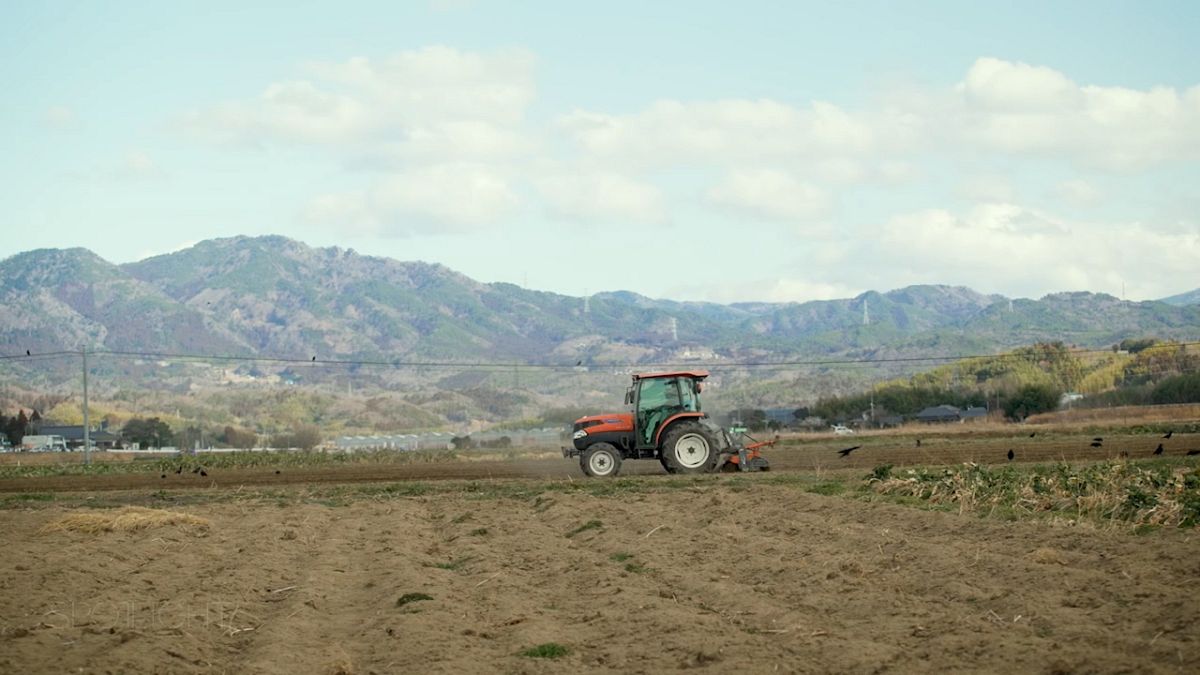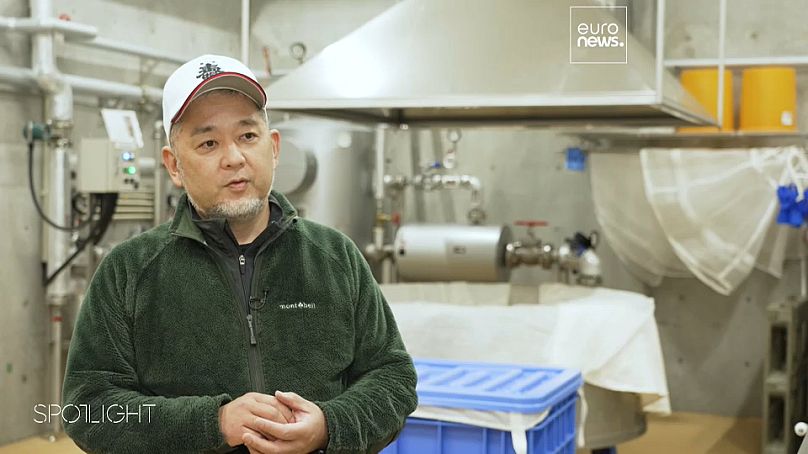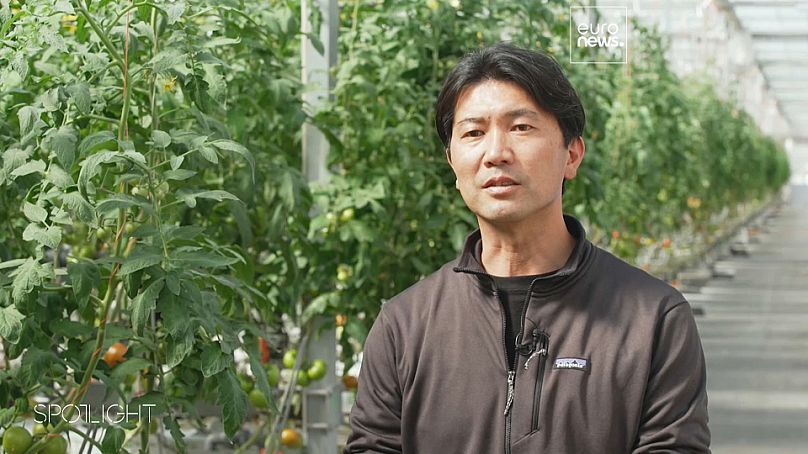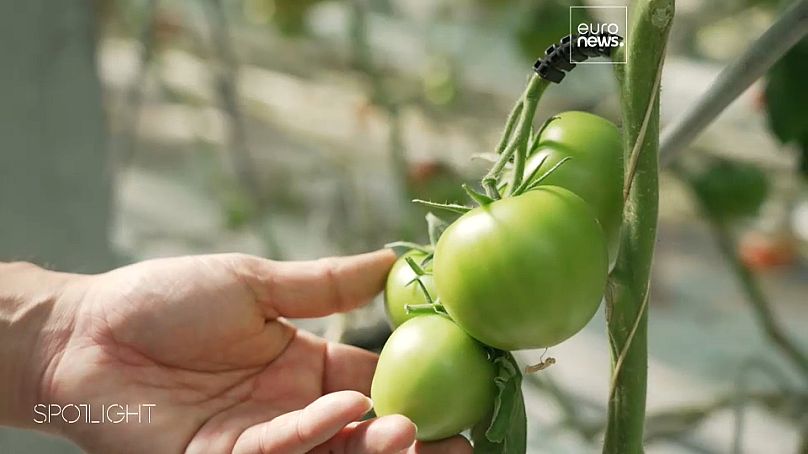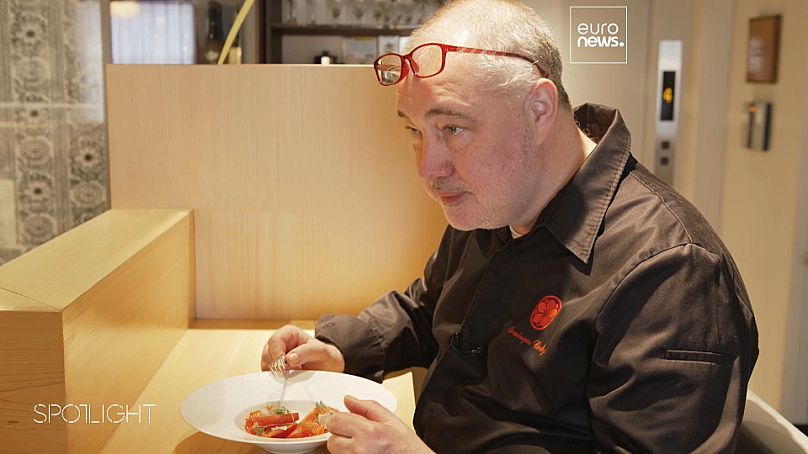Before the disaster, Fukushima was one of Japan's biggest agricultural producers. Now, its resilient farming community is helping consumers to enjoy the region's tastiest produce once again.
Fukushima was one of the biggest agricultural producers in Japan before the nuclear disaster in 2011. Today its resilient farming community is allowing consumers to once again enjoy produce from the region.
Enthusiastic producers along with decontamination efforts - that according to Japanese authorities reduced radioactivity rates to the same level as major cities - are allowing agriculture to gradually grow once again.
After 12 years, the Suzuki brewery recently returned to its hometown in Namie, one of the areas that were hit hardest by the disaster.
The old brewery, swept away by the tsunami, was located near the port. Brewers had a close link with the fishermen, and its sake was served to celebrate the big catches.
In Namie, the CEO of Suzuki Brewery, Suzuki Daizuke, wants to give a sense of hope and support to the local community.
"Before the earthquake, there were about 120 fishing boats, but now there are less than 30. To support the local fishing industry, we measured the compatibility of fish dishes that locals eat with our sake, and we combined them with AI to develop a sake called 'Fish-Sake Mariage' (Gyoshu Mariaju)," he told Euronews.
Sake is made using a different rice to that which you eat, and after the soil decontamination process, cultivating rice for food was the priority. As such, Daisuke started innovating.
"I made the sake with rice that we actually eat, and I really think it’s delicious. Moreover, I reckoned that through sake I could spread the fact that the rice produced in Namie has nothing strange about it," he revealed.
Seeing (and touching) is believing in Iwaki City
Farmers and producers in the region try to cope with consumers’ concerns with innovative initiatives.
One such initiative is Wonder Farm, a tomato 'theme park' in Iwaki City. Using greenhouses and a cutting-edge production system - which doesn't use soil - Motoki Hiroshi was able to increase production after the disaster.
He uses tomatoes to revitalise the region, by getting consumers to visit his farm, pick their own fruits, and taste their quality.
"Customers will understand the vegetables are safe if they see the local area and know about the producers who pick the vegetables. My aim is to restore agriculture and tourism," Motoki Hiroshi told Euronews.
"It’s the reason why, in addition to farming, I built a restaurant, a farm shop and a processing plant. I would like to create a facility where people can come and have fun," he explained.
Being hands-on, visitors can experience agriculture and enjoy tomato dishes, or buy unique produce like tomato miso or even tomato ice cream. All this is made on Motoki’s farm.
"After the earthquake, I ended up connecting with a lot of different people. Everyone fell in love with the produce from Fukushima. Many of them thought it was a shame that such tasty, good-quality products couldn’t be shipped. They wanted to help me send them all over the world," he said.
His farm is now an 'agricultural regional hub' where local farmers take their fresh vegetables to be sold or transformed into cooking products.
'Incredible': Fukushima's produce gets a chef's approval
In Japan's capital, Tokyo, French chef Dominique Corby is the owner of a French-Japanese restaurant. He uses Motoki’s tomatoes and started working with Fukushima’s producers in 2010.
Just a few days before the disaster, he was there on a field visit. The news of the disaster had an impact on Dominique, and that’s how he got involved in the recovery and follow-up of the production.
"This is one of Japan’s richest regions. Not only in terms of personal wealth but in terms of the produce. You can eat 100% safely. I have seen all the steps in order to sell the produce, it's incredible. So I think that the products of Fukushima can be eaten with real pleasure and a love for food," Dominique said.
